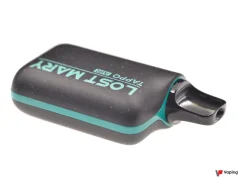The public school district in Lincoln, Neb., is the first in the state to sue Juul Labs for reportedly marketing their e-cigarettes to youth.
The Lincoln Board of Education for the local school district gave their legal counsel the right to file a federal lawsuit against Juul Labs. This makes Lincoln Public Schools (LPS) the first district in the U.S. state of Nebraska to sue the controversial vape firm.
Like virtually every other federal lawsuit filed against Juul by school districts across the U.S., Lincoln’s lawsuit is set to be a “mass-action litigation.” LPS is filing a lawsuit that was already drafted by a California law firm with the U.S. District Court for the District of Nebraska, which will be further consolidated with other lawsuits filed in 22 other states and will be heard in one overall action in a California federal court.
These lawsuits are requesting unspecified monetary damages to help schools and students to address tobacco prevention efforts, to finance vaping detectors, supervision, counselling, and further educational efforts. Injunctive relief is also sought by the plaintiffs, asking the company to own up to the so-called legal sin of purposefully marketing their vapor products to young people.
According to virtually every court claim so far, there is no proof that Juul Labs and companies like it knowingly and willingly marketed nicotine-containing vapour products to youth. There is evidence that these companies have marketed to young adults over the age of 18 years, but youth under the old and current minimum legal sales age of 21 years were by no means the targets of these marketing efforts.
“The issue spilled over onto school campuses, disrupting the learning environment,” Shinoff said, according to the Journal-Star. He and his firm, Shinoff added, conducted investigations into how Juul marketed their products to middle and high schoolers.
Due to Juul’s strategy of marketing their first generations of products on social media, Shinoff and his team argue that this was directly targeted to youth. This again shows no major truth behind the choice to market on social media platforms with the intention of reach adult consumers who are looking for alternatives to traditional cigarettes.
“When a company creates something like this, they have to be held accountable,” Shinoff said, citing the claim that Juul is no better than big tobacco.








